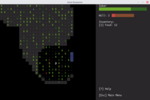The Skeptics' Guide to the Universe by Steven Novella
book, review, science
This review was originally posted at Goodreads and imported here later with next to no spell/grammar checking.
5/5 stars
A huge caveat to this review: the authors of this book are hosting a weekly podcast (of the same name) I’ve been keenly listening to for 7 years. They feel like friends I’ve never met and this has certainly coloured my views of the book.
That said, it’s fantastic. I love it.
The Skeptic’s Guide is not about automatic doubt and dismissal of everything as the title might suggest. It is about the exploration of scientific scepticism — how to approach claims and investigate whether (or how likely) they are correct and why might people believe otherwise.
It contains discussions on the methods of science, workings of the human brain and the various ways one can deceive oneself. A good portion of the book is a sort of encyclopedia with entries documenting various logical fallacies (errors in thinking and argumentation), phenomena such as free energy devices, alternative medicine, UFO, homeopathy, fake news, science reporting, organic food, and the media. Included is discussion on hypnagogia — one of my favourite seemingly insane state of consciousness that a lot of people don’t know about and that can seriously confuse and freak you out.
I have also thoroughly enjoyed the section on cold reading. I’ve tried to indulge the authors in their "remote attempt to read my mind" and it was spooky how successful it ended up being.
Next, the authors each shared a personal story of their own investigation and inquiry. I have found Steve Novella’s journey around GMOs particularly fascinating. It is an area full of misinformation, propaganda and strong opinions.
What follows is a mercifully short chapter on "death by pseudoscience". With a chilling clarity, it addresses the "what’s the harm?" dismissal of the various nonscientific beliefs and approaches. It is this chapter that made me literally cry out loud. And then sob. There seem to be no bounds to the horrific acts people can do under misguided beliefs.
The book is broadly agnostic towards any religion. To the extent that one’s faith stays outside of testable scientific questions, it is left alone.
What does get addressed are factual, testable claims. E.g. a belief in an Earth that is a few thousand years old would be challenged, but any claims on the existence of the supernatural would not be. Science has clear boundaries and limits and this book follows follows them.
It is a book I would recommend everyone to read. It will help broaden your horizons and navigate the pitfalls common to everyone’s thinking. It will also help expose common scams and deceptions people have, are and will be using to sell you stuff or convince you of something that is not true.
The actual claims and facts the book presents are indeed the less important aspect. They may be made obsolete by new evidence, after all. It’s the patterns of thought and awareness of our own cognitive limitations that will stay relevant and useful.
